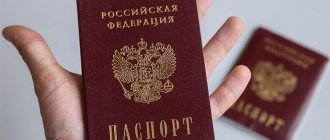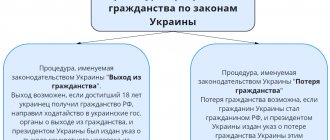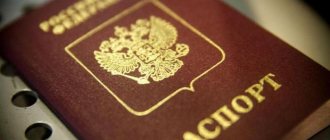Stateless persons in the Russian Federation enjoy the rights and responsibilities and bear responsibility on an equal basis with citizens of the Russian Federation, with some features. In particular, they cannot be called up for military service or be in municipal service, or receive free land plots that are state or municipal property.
A stateless person is an individual who is not a citizen of the Russian Federation and does not have evidence of citizenship (nationality) of a foreign state (Clause 1, Article 2 of Federal Law No. 115-FZ of July 25, 2002
).
Reference. Documents proving the identity of a stateless person in the Russian Federation Documents proving the identity of a stateless person in the Russian Federation are (clause 2 of Article 10 of the Federal Law of July 25, 2002 No. 115-FZ
): 1) a document issued by a foreign state and recognized in accordance with an international treaty of the Russian Federation as an identification document of a stateless person; 2) temporary residence permit; 3) residence permit; 4) other documents provided for by federal law or recognized in accordance with an international treaty of the Russian Federation as documents identifying a stateless person.
Reasons for loss of citizenship
Stateless persons are people who, from birth or at an older age, have lost their affiliation with a particular state. There may be several reasons for this situation:
- A person becomes stateless from birth if he was born into a family of stateless parents. In this case, the condition must be met that the country does not provide for automatic acquisition of citizenship at the place of birth. As for the Russian Federation, here the child of a stateless person becomes a citizen without any additional procedures.
- Voluntary and conscious renunciation of citizenship in a country. After submitting an application and completing the appropriate procedure (if it is provided for by law), the person submits his passport to the migration authorities and automatically becomes stateless. Typically this is a temporary situation. Typically, such a procedure precedes the adoption of citizenship of another state.
- Forced deprivation of citizenship is possible if the state security service considers a person’s presence on its territory to be potentially dangerous. As a rule, this procedure is followed by the expulsion of the person from the country. It may also be due to political persecution.
- Detection of fictitious legal procedures. For example, it was found that a person entered into a false marriage in order to obtain a certain status in the state. Or the person is in the country on the basis of a fake ID. This entails deprivation of citizenship.
- The disappearance of the state itself as such. For example, after the collapse of the USSR, all its citizens automatically lost their citizenship. In fact, they were stateless until they replaced their Soviet passport with an identity card of the new state. It is interesting that even today there are people who have not replaced their Soviet passport with a new one.
- Conscious reluctance to have any citizenship. This may be due to religious, political or some other beliefs and motives.
Citizenship concept
In accordance with, citizenship is a stable political and legal connection that a subject (individual) acquires in relation to Russia as a state entity. This connection is manifested in the relationship between the state and the person under its protection. The Russian Federation, like any other state, provides protection when they are outside the country, for which they undertake to comply with laws and other written rules and regulations dictated by the state. The totality of these rights and obligations distinguishes a foreigner and a subject without citizenship (or citizenship) from a citizen of the country.
The vast majority of people end up with or from foreigners, but on Russian territory (). However, the law provides for other ways of establishing a legal connection with the Russian Federation, in particular, , , and others.
Read more about the legal relationship between a citizen and the state, as well.
Limitation of the rights of stateless persons
Stateless persons are the subject of ongoing debate regarding legal status as well as situation in the country of residence. As a rule, stateless people are treated with distrust, and therefore the legislation imposes some restrictions on their rights and freedoms, namely:
- ban on participation in elections and referendums;
- impossibility of holding positions in government agencies and in positions related to the preservation of state secrets;
- ban on military service;
- impossibility of working as pilots of military and civil aviation, as well as captains of sea vessels;
- Membership in parties and other political associations is prohibited;
- restriction on movement within the state, provided that the government has adopted a corresponding order.
Rights, duties and responsibilities of stateless persons
The rights of stateless persons and state citizens are almost equal, however, the former are deprived of the following opportunities:
- vote in elections, join political parties and other associations;
- apply for public office;
- perform military service;
- work in positions with a high level of responsibility and authority (for example, captain of a ship or aircraft).
According to Russian laws, a stateless person can receive education, medical care and get a job.
The responsibilities of stateless persons primarily include compliance with the laws of the country in which they are located, as well as payment of taxes and contributions, and respect for the Constitution of the country.
Imperfections of the legislation of the Russian Federation regarding stateless persons
The stay of stateless persons on the territory of the Russian Federation is somewhat complicated by the imperfection of the law. We are talking mainly about bureaucratic formalities associated with the acquisition of a specific status in the country. Thus, as a prerequisite for obtaining the status of a temporary resident of the state, a stateless person must present a migration card. But a person with such a status simply cannot have such a document. And without the status of a temporary resident, a stateless person cannot obtain a residence permit and go through the remaining stages of acquiring citizenship. It turns out something like a bureaucratic vicious circle.
How can you become stateless?
When wondering how to become a stateless person, a Russian citizen must understand that he has few opportunities to make such a transition.
Theoretically, only four grounds can be identified that allow the acquisition of stateless status:
- Birth from stateless parents, provided that the legislation of the country of birth (for example, Myanmar, Syria and Iraq) does not provide for the granting of one's own citizenship in this case.
- Forced.
- Termination of the existence of the state.
- Voluntary renunciation of citizenship and obtaining the status of LBG (interpretation - stateless person).
However, all these options are not implied by Russian legislation, and therefore cannot be applied to Russians.
Study in more detail the information about why you cannot leave Russian protectorate and become stateless and how the procedure works.
Document of a stateless person
The stateless person does not have any documents confirming his identity. He may not have a passport or birth certificate. However, a person must have some kind of document identifying him. One of the following options is possible:
- an identity card issued in another country;
- temporary residence permit;
- resident card;
- stateless certificate;
- other documents that are valid on the territory of the state.
Crossing the Russian border by a stateless person
It is worth figuring out whether a person can not have citizenship and still travel abroad and return back to Russia. The legislation provides for such a possibility. The general procedure for the entry/exit of stateless persons from/to the Russian Federation is stipulated in.
According to this article, the procedure for crossing the border depends on the degree of integration of a stateless person into Russian society:
- In general cases, to cross the LBG border, you will need an identity document from a foreign country, as well as a Russian visa.
- If, crossing the border is carried out on the basis of a temporary residence permit and a visa of a temporary resident.
- If a residence permit has been issued, only a residence permit is sufficient to cross the border.
We invite you to learn more about the procedure.
Denial of legal status
The status of a stateless person must be determined within three months from the moment of arrival on the territory of the Russian Federation. By contacting the migration service, a person may be denied registration. There can be three main reasons for this:
- if migration service employees see a stateless person as a threat to state security or to certain individuals;
- if the stateless person has previously been deported from the country in which he wants to obtain a certain status;
- if a person has an open or outstanding criminal record.
The concept of “binational” and its legal status
The concepts of stateless and bipatrid are not identical. These are two completely different concepts. A citizen is called binational if he has citizenship of two states. Bipolid is the second name for bipatride. There are several ways to obtain dual citizenship. A binational person has certain rights and obligations to states.
Photo: https://pixabay.com/illustrations/visa-travel-travelers-book-1623894/
The effective citizenship rule applies to those who have dual citizenship. According to this term, a citizen is not a binational citizen. He is considered a citizen of the country in whose territory he currently resides, and, therefore, enjoys the rights of that country. There are countries that agree to sign and sign bilateral agreements. Such agreements give bipatrids the right, for example, not to pay taxes in two countries, and they also do not need to serve in the army in two countries. But there are duties that a bipatriate undertakes to fulfill in each of the countries whose citizenship he has.
Citizenship as a duty
In global legal practice, there is an ambiguous position regarding such a category as stateless persons. This is due to the fact that more and more countries are introducing a ban on the voluntary renunciation of citizenship. The exception is cases when this action is carried out for the purpose of formalizing belonging to another state. Conventions adopted by the UN General Assembly in 1961, as well as the Council of Europe in 1997, define citizenship as a human responsibility. Countries that have signed these documents undertake to take measures to prevent voluntary renunciation of belonging to the state without transferring to another nationality.
Who is a stateless person
However, not everyone has such a legal connection. Therefore, first, let’s figure out what a person who does not have citizenship and nationality is called. Such a subject has the status of a stateless person or stateless person. Legal dictionaries give different definitions of these two concepts, which, however, does not in any way change their legal meaning, which is recorded in.
Stateless persons or stateless persons are persons who are not citizens of Russia and who do not have evidence to establish their citizenship in any other state.
Thus, the Russian legislator does not consider them as foreigners, identifying them as a separate group of subjects of law. At the same time, they are not recognized as having a special “humanitarian” status, and the term “stateless” is used to designate persons who remain in stateless status by virtue of their own will. The legislator does not provide any obstacles to changing their status, other than the general conditions for acquiring citizenship.
The Office of the United Nations High Commissioner for Refugees (UNHCR) has a different opinion. The Organization pays special attention to the problem of the spread of statelessness in the Russian Federation. Thus, the lack of citizenship, according to the Main Directorate of Migration Affairs of the Ministry of Internal Affairs for 2012, was recorded among more than 31 thousand people living in Russia, and the number of stateless people, according to the results of the population census in 2010, was about 178 thousand people. These inconsistencies do not allow us to talk about complete clarity on the issue of statelessness in the Russian Federation.
UNHCR is concerned about this state of affairs: according to representatives of the organization, statelessness impedes the realization of basic human rights in Russia.
In an attempt to rectify the situation, UNHCR representatives provide legal assistance, carry out activities in support of stateless persons, promote their local integration, represent their interests in government bodies and promote favorable changes in Russian legislation.
At the same time, we emphasize that stateless people and bipatrids are different subjects, despite the fact that both statuses are recognized as legal by Russian legislation. The first category is characterized by absolute statelessness, while representatives of the second have several passports at once. But if one of them is Russian, for the Russian Federation such a binational will be considered primarily a Russian.
Citizenship as a right
In 1948, the UN General Assembly adopted a declaration in connection with which citizenship acts as a right. Every person has the right to belong to a state and cannot be deprived of it. At the same time, no one has the right to restrict a person from renouncing citizenship. For example, in the United States, renunciation of belonging to a country is enshrined at the legislative level.
Rights of stateless persons in the Russian Federation
Stateless persons enjoy rights in the Russian Federation on an equal basis with citizens of the Russian Federation, with the exception of cases established by federal law or an international treaty of the Russian Federation (Part 3 of Article 62 of the Constitution of the Russian Federation
;
clause 2 art. 2, Art. Art. 3, 4 of the Federal Law of July 25, 2002 No. 115-FZ
).
Thus, the right to freedom of movement within the Russian Federation for stateless persons is limited, in particular, by their regulated visits to certain territories of the Russian Federation (for example, the city of Komsomolsk-on-Amur and the Chukotka Autonomous Okrug) (Part 1 of Article 27 of the Constitution of the Russian Federation
;
clause 1 art. 11 Federal Law of July 25, 2002 No. 115-FZ
;
clause 2 of the List, approved. Decree of the Government of the Russian Federation dated October 11, 2002 No. 754
;
pp. 2, 17 of the List, approved. Decree of the Government of the Russian Federation dated July 4, 1992 No. 470
).
The right of stateless persons to freely manage their ability to work, choose their type of activity and profession in the territory of the Russian Federation is also limited. For example, the right to engage in labor activity arises as a general rule when a person reaches the age of 18 and has a work permit or patent. An exception to this rule is provided, in particular, for stateless persons permanently or temporarily residing in the Russian Federation (Part 1 of Article 37 of the Constitution of the Russian Federation
;
Art. 327.1 Labor Code of the Russian Federation
;
clause 1, 4 art. 13 of the Federal Law of July 25, 2002 No. 115-FZ
).
Reference.
Restrictions on certain types of activities of stateless persons Stateless persons do not have the right, in particular (clauses 1, 3, article 56 of the Merchant Shipping Code of the Russian Federation;
clause 3 art. 1247 Civil Code of the Russian Federation
;
clause 1 art. 13, paragraph 1, art. 14 Federal Law of July 25, 2002 No. 115-FZ
;
Art. 2 Fundamentals of the legislation of the Russian Federation on notaries
;
Art. 13 Federal Law of May 31, 2001 No. 73-FZ
;
clause 3 of the List, approved. Decree of the Government of the Russian Federation dated October 11, 2002 No. 755
):1) be in municipal service; 2) fill the positions of captain, chief engineer as part of the crew of a vessel sailing under the State Flag of the Russian Federation; 3) be a member of the crew of a Russian warship or another vessel operated for non-commercial purposes, as well as the commander of an experimental aircraft; 4) work at facilities and organizations whose activities are related to ensuring the security of the Russian Federation (for example, in organizations that include radiation-hazardous and nuclear-hazardous production facilities); 5) be a notary or patent attorney; 6) hold the position of expert in state forensic institutions.
Regarding the right to medical care, the following can be noted. Stateless persons permanently residing in the Russian Federation enjoy the right to medical care on an equal basis with citizens of the Russian Federation, unless otherwise provided by international treaties of the Russian Federation. In the absence of a residence permit and compulsory medical insurance policy, such persons, in addition to the right to receive paid medical services, have the right to receive emergency (including emergency specialized) medical care free of charge (Part 1 of Article 41 of the Constitution of the Russian Federation
;
Part 3 Art. 19, part 1 art. 35, part 1, clause 3, part 5, art. 84 Federal Law of November 21, 2011 No. 323-FZ
;
clause 1 art. 2 of the Federal Law of July 25, 2002 No. 115-FZ
;
ruling of the Supreme Court of the Russian Federation dated July 25, 2013 No. APL 13-297
).
The right of private ownership of land for stateless persons is also limited. Thus, they cannot have ownership of land plots located in border territories and other specially established territories of the Russian Federation in accordance with federal laws. Land plots that are in state or municipal ownership are provided to them as ownership solely for a fee. Also, as a general rule, they can only own land plots from agricultural lands on a lease basis (Part 1 of Article 36 of the Constitution of the Russian Federation
;
clause 3 art. 15, paragraph 4, art. 39.4 Land Code of the Russian Federation
;
Art. 3 of the Federal Law of July 24, 2002 No. 101-FZ
).
Establishing the identity of a stateless person
If there is an intention to obtain any legal status, stateless persons must first go through an identification procedure. To do this, you need to contact the Federal Migration Service with a corresponding application, to which the originals of all documents available to the person are attached. The following documents are required:
- original or duplicate birth certificate;
- notarized copies of parents’ passports (their personal appearance is also possible);
- certificate of registration on the territory of the Russian Federation (if one is not available, a departure sheet or any archival documents can be provided);
- a detailed autobiography, handwritten in Russian;
- a receipt confirming payment of the state duty.
Legalization of a stateless person in Russia
The process of legalization of stateless persons consists of several stages.
The first stage is identity confirmation. If the candidate does not have the necessary documents, then an identification procedure should be requested. To do this, a person must contact the nearest branch of the Directorate for Migration Issues of the Ministry of Internal Affairs of Russia. You will need to provide an application and all available papers with any personal data (education document, marriage certificate, invalid passport, driver’s license, etc.). You will also need:
- candidate's birth certificate;
- parents' passports;
- a certificate of registration in the Russian Federation or a certificate of departure from the territory of a foreign state;
- autobiography of a stateless person.
You will need to pay a state fee to confirm your identity.
The next stage is the registration of a temporary residence permit (TRP) and dactyloscopy (fingerprinting). It is the temporary residence permit that allows stateless people to enjoy benefits on an equal basis with citizens of the country: take out a medical policy, find a job, get an education. Every year, the government of the Russian Federation sets quotas for issuing this document, and the number of applicants greatly exceeds them, so, unfortunately, not everyone has time to obtain permission. To apply for a temporary residence permit, a stateless person must appear at the Federal Migration Service and write a corresponding application. When submitting documents for a temporary residence permit, a fee of 1,600 rubles is charged.
A temporary residence permit in Russia allows a stateless person to enjoy the rights of a resident of the country
The last stage is obtaining a residence permit. It is issued one year after the stateless person has issued a temporary residence permit. It is worth starting the process in advance, at least six months before the expiration of the temporary residence permit. To apply for a residence permit, you must personally appear at the office of the Federal Migration Service of Russia and provide a number of documents:
- application for a residence permit,
- any identification document,
- 4 standard photos 3*4 cm,
- RVP,
- a certificate of income that is not lower than the subsistence level (for the working-age population at the end of 2021 it was about 10,600 rubles),
- a document proving the availability of a place of residence,
- medical certificate confirming the absence of diseases dangerous to others.
An application for a residence permit for minors is submitted by parents or other legal representatives.
A person residing in the country on the basis of a residence permit is required to appear at the Federal Migration Service every year and confirm his presence in the country, as well as notify if he has left it. Stateless persons are issued a residence permit for 5 years.
The fee for obtaining a residence permit is 3,500 rubles. It takes no more than 6 months to process the application.
Video: Russian citizenship, status of foreigners
Obtaining Russian citizenship using a simplified scheme
As a rule, the legal status of a person from citizenship upon receipt of a certain statute in the Russian Federation is the same as that of any other foreigner. Nevertheless, there are a number of cases when a stateless person can obtain membership of a country under a simplified scheme within six months:
- A stateless person has one or two parents who permanently reside in the Russian Federation.
- The stateless person was a full citizen of the Soviet Union, of which Russia declares itself to be the legal successor.
- A stateless person has a birth certificate in the USSR.
- The person was married to a citizen of the Russian Federation for at least three years.
“The right of foreigners” as a special regime in the field of public law
The concept of “right of foreigners” comes down to the definition of a special regime for foreign citizens in the field of public law. These rules define the basic principles of granting the right to residence, settlement, employment, etc., as well as rules limiting the rights of foreigners (the rights of movement, the acquisition of real estate, to engage in certain professions, etc.).
Note 2
“The law of foreigners” is a set of rules that are only of a substantive and legal nature, regulating relevant relations in essence and defining the special status of foreigners.
“The right of foreigners” determines the legal status of a foreign person in both a broad and narrow sense:
- in a broad sense, this is a set of rules that determine the status of a foreigner in relations, establishing distinctive features, recognizing an equal legal regime with citizens of Russia, including those necessary for the activities of a foreigner within a given state;
- in a narrow sense, this is a set of norms of an administrative and legal nature that are directly related to the distinctive features of the legal status of a foreign person from the legal status of a Russian.
Modes of stay: description and classification
Legal regimes regulate such issues as:
- Length of stay in the state legally;
- Number of rights and freedoms;
- Possibility of obtaining citizenship.
At the legislative level, 5 legal regimes are established.
You may also like
1
Finding suitable work with temporary residence permits in the Russian Federation
3 137
Temporary stay
This category includes foreign citizens who:
- Entered Russian territory with a visa;
- We took advantage of the right of visa-free entry.
To cross the border, such persons fill out a migration card, which will be required for timely departure from the country.
Temporary stay does not imply:
- Obtaining a residence permit;
- Registration of temporary residence permit.
The length of stay in the country is determined by 2 factors:
- The interval specified in the visa (if it is previously issued for a trip to Russia);
- The rules for visa-free entry are 3 months of direct stay in the country per six months.
There are exceptions to the last point. These include work activities. In such a situation, the IG may remain in the country for the duration of the employment contract and work permit.
After the end of the permitted period of stay in the country, a foreigner has 3 options:
- Leave Russia;
- Extend the period of temporary stay;
- Submit papers for registration of a temporary residence permit.
TRP (temporary residence permit)
Foreign citizens who managed to obtain such a permit have the right to reside in the country for 36 months. Afterwards they have the right to apply for a residence permit.
It is important to note that the number of permits opened per year is limited. Migration authorities are issued a state quota for them. This year it amounted to about 90,000 RVP.
At the legislative level, cases of issuing permits outside the quota are also provided for. The preferential categories include:
- Parents who have lost their ability to work and have children who are citizens of the Russian Federation;
- Entrepreneurs planning to invest in the Russian economy;
- Husband/wife of a Russian citizen and so on.
Holders of temporary residence permits must take into account that they are “tied” to the region of residence. It is prohibited to leave it without permission from the migration services. But within this territory they can get a job and lead a normal life.
Foreigners with a temporary residence permit can travel outside the Russian Federation and return back any number of times within 3 years. There is no need to notify the FMS about this.
Residence permit (permanent residence)
This document is issued for a period of 5 years. Only migrants who meet a certain condition can receive it - those who have lived with a temporary residence permit in the country for at least 12 months.
It is important that the residence permit is subject to renewal. This can be done several times at the request of the migrant.
The holder of a residence permit must officially notify the FMS of his place of residence every year. In doing so, he can:
- Take advantage of social benefits;
- Feel free to get a job;
- Change your place of residence and region;
- Officially invite friends and relatives to the country;
- Take part in (municipal) elections.
If after 5 years the IS wants to stay in Russia, then he can try to apply for citizenship.
Diplomatic immunity
The term itself is widely used in international law and denotes the impossibility of applying the laws of a country to a foreigner located in it.
IGs related to the work of the diplomatic mission have diplomatic immunity.
Refugees
This status is assigned to two categories of visitors:
- Foreign citizens;
- For persons – former citizens of the Russian Federation.
There is only one reason to gain the legal status of a refugee – fear for your life. They can arise as a result of persecution for various reasons. Most often this is:
- Religious;
- Political;
- Racial.
The holder of the “Refugee” status receives a number of rights, benefits and opportunities:
- Financial and in-kind assistance;
- Providing housing;
- Organized hot meals at special points;
- Carrying out business activities and so on;
- Free movement within the country and abroad.
Registration of Russian citizenship for LBG
Stateless persons have the right to acquire Russian citizenship in the same way as foreigners: according to a general or simplified scheme. To pass the general procedure, in accordance with the requirements, you must live for 5 years in Russia on the basis of a residence permit, have a legal source of income and confirm your knowledge of the Russian language.
Simplified rules are provided. Under this scheme, the mandatory period of residence may be reduced, and the rule of mandatory residence permit or temporary residence permit status may not be taken into account.
Many categories have the right to undergo a simplified procedure, in particular, children of citizens of the Russian Federation, native speakers of the Russian language, recognized persons, former citizens of the USSR, immigrants from former Soviet republics who had Soviet citizenship but remained stateless.
Since the majority of Russian stateless persons fall under the latter definition, every year at least 15 thousand of them acquire Russian citizenship under a simplified scheme.










